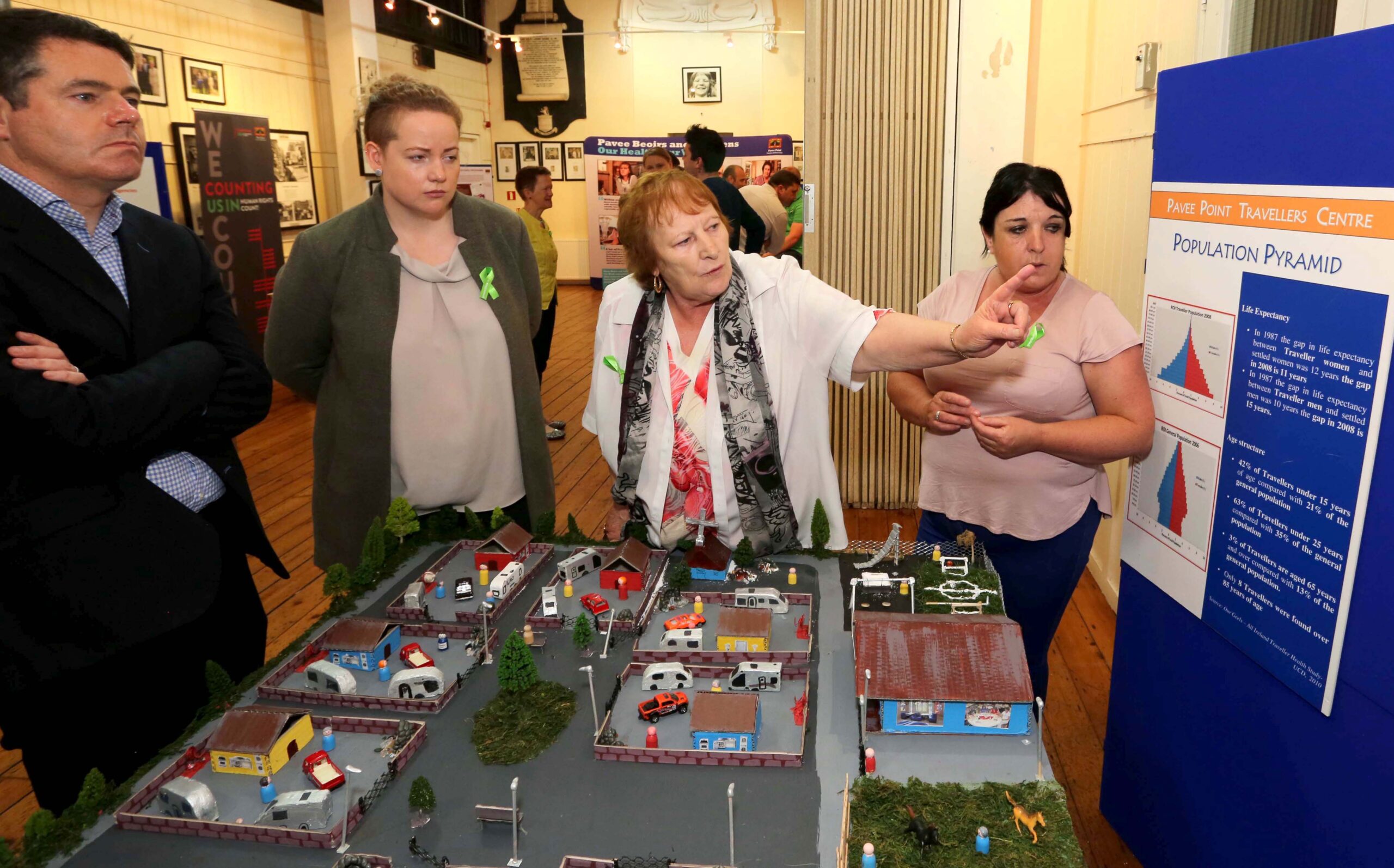Bridgie Collins has been a Traveller Community Health Worker at Pavee Point for over thirty years. The Primary Healthcare for Travellers Project (PHCTP) at Pavee Point comprises 16 Traveller women who work with over 300 families in the North Dublin region, amounting to over 1200 individual Travellers. The project was the first PHCTP in the country to be established in 1994 and later replicated across the country. The work of the project is underpinned by a community development approach, with associated principles of social justice, solidarity, equality and human rights; and an approach that involves participation, empowerment and collective action. The project is informed by a social determinants of health analysis and Traveller Community Health Workers undertake health advocacy in a range of health arenas primarily through outreach work.
Bridgie reflects on starting with the PHCTP. “I believe that Primary Health Care for Travellers is one of the best things that has ever happened for my community, because we were Travellers and we knew what our community needed.” she says.
However, it was difficult in the beginning as it was a new project as funders were not convinced that Travellers, especially those with limited literacy, would be able to work on the ground. She recalls how the PHCTP had to think about the best ways to approach families at the beginning, “I was part of the team who carried out the first needs assessment at the beginning of the project in the 1990s. At that time, there were 85 families in Finglas and we went out and asked Travellers about their health, their needs and issues. At first, people were wary and didn’t know what we were trying to do but by explaining to Travellers who we were and what we were there to do, it helped to build trust. It also showed the Health Board that we could do the work and that we were badly needed on the ground.”
Bridgie continues, “We informed them the PHC team were there to talk about our health as a community; men’s health, women’s health, children’s health. Over the years, we built up trust and confidentiality with them.” The needs assessment provided critical information on the needs of Travellers in the area and was used to develop strategies to target Traveller health inequalities.
One of the proudest moments of Brigie’s career was gathering the data for the All Ireland Traveller Healthcare Study (AITHS, 2010). She remembers the shock at the results from both the Travellers who took part, and the HSE and other health services.
“The HSE in particular were shocked that PHCTP workers had collected so much information, even though most of us could not read or write. I was able to tell other people about the results because I knew that the pyramid wasn’t right, it was the shape of a Christmas tree and that meant we were a young population, with very little older people. So we had our own way of communicating those messages.
The AITHS was a resounding success due to the 300 Traveller Community Health Workers, mostly Traveller women on the ground; the study had over 80% participation, with over 40,000 Travellers taking part. This is underheard of in any research, particularly in a so-called ‘hard-to reach’ community. The AITHS illustrated the social determinants of health that impact on Travellers.
Bridgie reflects on the impact that the PHCTP has made to the lives of Travellers all over Ireland, and the tough situations she has encountered through her work. She speaks about a time she visited a young woman who had just had her third child, ”We noticed how the young woman was stooped over when she went to the baby in the cot. We asked her what was wrong and she told us she had had a c-section and never got the stitches out. She was in awful pain.We got her an ambulance straight away and someone to look after her children.” The woman spent a week in hospital and received lifesaving care as a result of Bridgie and her colleague’s professional knowledge and fast-acting approach to the situation.
Bridgie enjoys the knowledge sharing aspect of the role, and seeing the project grow nationwide. “I have given talks and training to new PHC projects with others who have worked on the project since the start.” she says. Bridgie’s success in her role, and the success of the other older women in the PHCTP has resulted in last positive outcomes on Traveller health. “Travellers are linking in with services now themselves. That’s because of our work. We’ve saved lives, and are continuing to save lives of people in our community. You saw through COVID-19 the important work we did to protect Travellers, including the most vulnerable. We’ve done very good work and there’s more to be done.”

